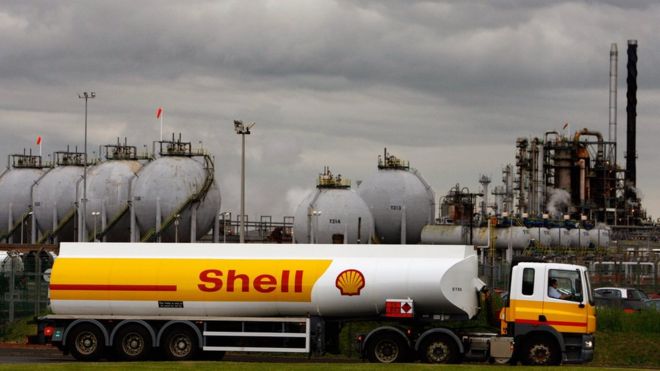Nigeria has blocked Shell's sale of its entire onshore and shallow-water oil operations, but approved a similar deal by Exxon Mobil, the country's upstream oil regulator said on Monday.
Shell's asset sale for up to $2.4 billion to the Renaissance consortium, comprising five companies, was first announced in January.
Exxon's deal with Seplat Energy has awaited regulatory approval for more than two years since a $1.28 billion fee was announced in February 2022.
In a speech at an event in the capital Abuja, Nigerian Upstream Petroleum Regulatory Commission (NUPRC) CEO Gbenga Komolafe said the Shell deal "could not scale (the) regulatory test," but did not elaborate. Exxon's transaction was granted ministerial approval.
President Bola Tinubu had signalled on Oct. 1 that the Exxon-Seplat deal would receive ministerial approval in a matter of days after getting clearance from the regulator.
"We welcome the regulator’s announcement and look forward to formally receiving the ministerial consent as we work toward the conclusion of the sale," Exxon said in a statement.
A Shell spokesperson did not immediately respond to a request for comment.
The rejection is a blow to Shell's strategy to pivot toward deepwater for future investments and reflects the growing challenges that oil companies face in Nigeria.
Oil majors operating in Nigeria, Africa's largest oil exporter, have been retreating from onshore operations hampered by theft and sabotage, opting to focus future investments on newer and more lucrative deep offshore fields.
The Shell assets hold a combined estimated volume of 6.73 billion barrels of oil and condensate and 56.27 trillion cubic feet of associated and non-associated gas.
Under Exxon's deal, Seplat will own 40% of four oil mining leases and associated infrastructure, including the Qua Iboe export terminal, and 51% of the Bonny River natural gas liquids recovery plant previously owned by Mobil Producing Nigeria Unlimited, Exxon's local unit.
In trying to exit the oil-rich Niger Delta, Shell follows Exxon Mobil, TotalEnergies and Eni who wanted to do so due to security concerns.
NUPRC approved the sale of onshore assets by Eni's local unit to Oando in July and another from Equinor (to new entrant Project Odinmim.
Environmental activists and some communities opposed the Shell-Renaissance deal, tying Shell to a string of lawsuits for environmental restoration and compensation for land and rivers damaged by oil spills.
In April, NUPRC started evaluating Shell's divestment to the consortium, which comprises four Nigerian exploration and production companies and an international energy group.
Latest Stories
-
Braye hits hat-trick as Medeama beats Dreams FC 4-0
1 hour -
Electricity tariffs up by 14.75%, water by 4.02% in latest review
1 hour -
Francophonie Festival 2025: A celebration of education and culture
1 hour -
Most Ghanaians are like single-phased wires -Prof. Akosa
2 hours -
GUBA leads historic Memphis-Ghana Trade Mission, paving the way for diaspora investment
2 hours -
KNUST declares 2 former students persona non grata over indiscipline, campus disturbances
2 hours -
IGP clarifies comments on recruitment of Bawku youth into the police service
2 hours -
GOIL CEO tours Tema Lubes Oil Company
4 hours -
Communication Minister meets Afriwave Telecom management
4 hours -
We cannot remain imprisoned in history and lamentation – Prof. Lumumba urges
4 hours -
Ukraine allies pledge €21bn in fresh military aid
4 hours -
Bawku: IGP’s recruitment comment may be well-intended but timing is bad – Security analyst
4 hours -
We must re-enter 21st century with laws known to Ghana – Prof Lumumba
4 hours -
Minority urges gov’t to take drastic action amid fresh clashes in Bawku
5 hours -
Bosompem Richmond writes: IGP Yohunu’s approach to Bawku conflict dangerous
5 hours

